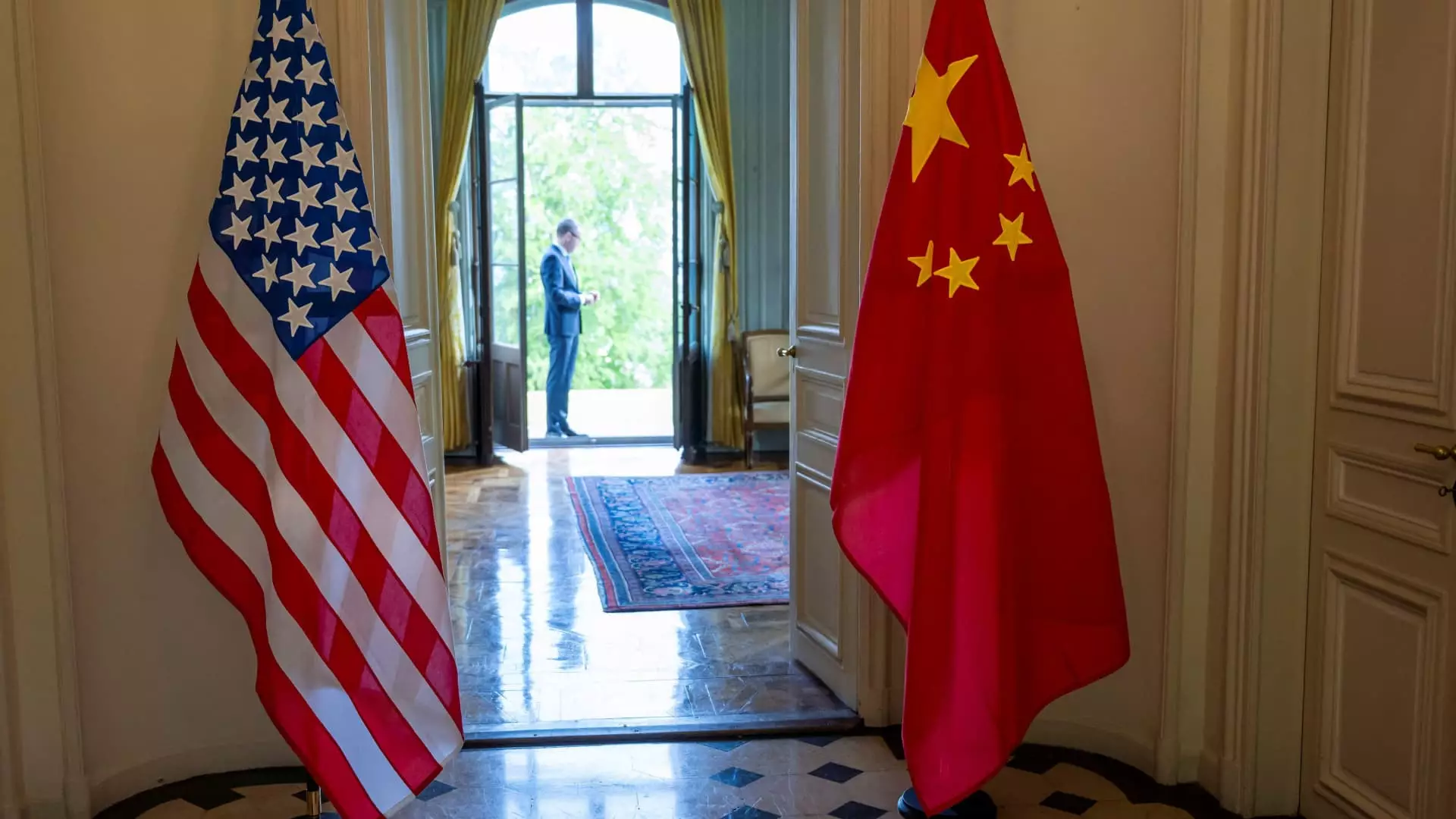The ongoing stagnation of U.S.-China trade talks reveals a deeper malaise in international diplomacy that could have dire consequences worldwide. Recently, U.S. Treasury Secretary Scott Bessent remarked that the negotiations are “a bit stalled,” suggesting a significant breakdown in communication between the two global superpowers. This inadequacy in dialogue is not merely an economic concern; it can ignite political tensions and destabilize not just the two nations involved, but entire global trade systems.
The backdrop of this stalled conversation is troubling. After an escalation of trade tensions, an apparent breakthrough in negotiations took place in Switzerland in May, where an agreement was reached to roll back tariff increases for a limited period. However, as both sides resumed their usual sparring over technological restrictions and rare earth elements, it became apparent that such a cosmetic solution is unlikely to yield substantive progress. Restrictions from both countries have stalled the momentum built in Switzerland, underscoring the complexities and the diabolical interdependencies that characterize U.S.-China relations.
Leadership Engagement: A Necessity
Bessent emphasized that to navigate this complex landscape, direct engagement from both nations’ leaders is essential. This begs the question: Why has there not been more urgency on both sides to arrange such talks? The last conversation between Presidents Trump and Xi Jinping was in January, and it is clear that with every passing day, opportunities for collaboration diminish. The apparent reluctance from Chinese leadership to engage in dialogue unless certain conditions are met signals a precarious balance in the relationship; both parties desire to avoid making the first move that could expose their vulnerabilities.
While it is commendable that Bessent is advocating for higher-level discussions, it feels woefully inadequate. When leaders avoid direct contact, they relinquish control to technocrats and diplomats who may lack the broader vision and power necessary to effect real change. An effective relationship between the United States and China hinges on the personal rapport between these leaders, a rapport that, at the moment, seems dormant.
Technological and Economic Warfare
The technological restrictions imposed by the U.S. evoke a sense of rivalry that is fast morphing into an all-out economic confrontation. While American officials assert that these controls are meant to safeguard national security, it raises an alarming question: Are these actions fostering competition—or enmity? China’s ire over these restrictions is palpable, hinting at a deeper frustration regarding U.S. policy that seems more predicated on suspicion than on collaboration.
Moreover, the recent decision by the U.S. to revoke student visas for Chinese citizens adds another layer of tension. This move can be interpreted as a form of cultural sabotage; not only does it hinder educational exchange, but it also sows distrust and resentment among younger generations that might otherwise serve as bridges in this contentious relationship. With every action that seems punitive, it becomes increasingly difficult to envision a pathway toward cooperation.
Consequences of Inaction
The ramifications of a prolonged stalemate are troubling. Economically, stalling trade talks threaten global supply chains and can lead to inflation—a reality that Americans are only beginning to grasp. Politically, such discord broadens the chasm of misunderstanding and conflict narrative that both governments spin in their domestic spheres. In turn, this could spiral into a nationalist fervor that is both economically disadvantageous and socially detrimental.
The truth is that for every step backward in global diplomacy, the world pays the price. The potential fallout from trade wars, visa disputes, and technological isolationism bears the risk of irreversible changes to how countries interact on the global stage. For both the United States and China to emerge as leaders in the 21st century, a recommitment to constructive dialogue is necessary. This failure to communicate not only stifles growth but also curtails the ambitions of billions who rely on these nations to lead with integrity and foresight.
In this precarious environment, both nations must realize that running towards isolationism and mistrust is not a viable solution. If there were ever a time to forge alliances based on mutual respect and shared aspirations, that time is now. The growing complexities of our interconnected world demand it; our future depends on it.

